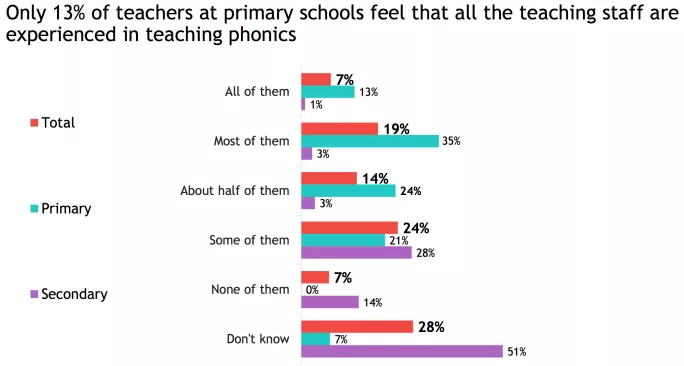Less than half of primary school teachers feel that most colleagues at their school are equipped to teach phonics to all children, according to a new Ofsted survey.
The inspectorate’s annual Teacher Attitude survey suggests a widespread lack of experience in primaries in teaching phonics, the government’s favoured method for helping pupils to learn to read.
In the poll, carried out for Ofsted by YouGov, only 48 per cent of teachers at primary schools said they believed that all or most of the teaching staff at their school were experienced in teaching phonics.
Phonics ‘flaws’: Why the phonics screening check doesn’t work
Adult education: 8 ways to use phonics with adults
Gibb: The Phonics war is over
More than 1,000 teachers in primary and secondary schools were surveyed in March and April this year, of which 397 were primary staff.
Fears over phonics teaching
In the survey, 24 per cent of primary school teachers said that around half of their staff had experience of teaching phonics and another 21 per cent said “some” of their staff had experience of teaching phonics.
None of the primary school teachers questioned said that no staff at their school had phonics teaching experience, while 7 per cent said they didn’t know.
Children take
a phonics test in Year 1 that consists of 40 words - 20 of which are real and 20 are nonsense, such as “shig”, “quisk” and “joil”.
The nonsense words are included to ensure that children are being tested on phonic knowledge and have not merely memorised words. The nonsense words are printed next to a picture of a monster to make it clear to children that each word is a monster’s “name”.
In the Ofsted poll, 70 per cent of primary school teachers stated that their school had a strategy for improving and teaching reading.
The Teacher Attitude Survey, published today, also shows that fewer than one in five teachers believe Ofsted is a reliable and trusted arbiter of standards.





